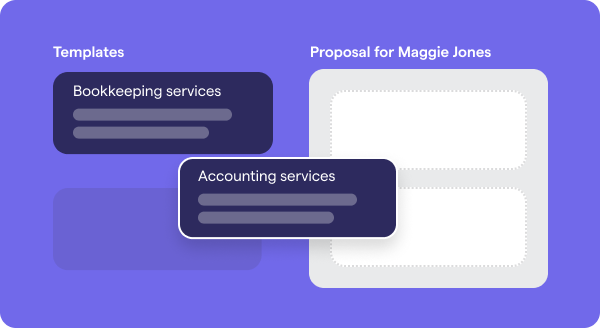Why it’s time to rethink your billing model

Transitioning to a recurring revenue model can help you achieve predictable, stable revenue streams and reduce the risk of debtors.
With a recurring revenue model, you bill your clients at regular intervals for ongoing services, rather than by the hour or on a per-project basis.
This approach has benefits for both your practice and your clients. For your practice, it means predictable cash flow and reduces the risk of delinquent accounts. For your clients, it provides a predictable billing cycle and makes sure they have ongoing access to your services.
But making the decision to switch to a recurring revenue model is not without its challenges. “There's no magic wand here,” says Jennie Moore, Ignition’s Partnerships Manager. “It's as awkward as possible… The hourly model is just as subjective as a fixed-fee model. And you really need to rethink it. If you want your firm to be more efficient, more profitable… if you want to pay yourself a salary (because many accounting professionals don't), you really need to think about money from the top level, not the bottom level. You can cut costs and subscriptions all you want, but you have to address the top line. You have to address revenue,” she says.
Related article: Tips for improving cash flow: Diagnosing accounts receivable
Consider what your client values the most
What’s more, you have to come to terms with the fact that there are only so many hours in the day, Jennie Moore says. “So if you have an hourly rate, times that by the number of hours in the day – hope you never sleep, eat, or have a life – and that's the maximum amount you've just put on your value. And that's really difficult. So, when you're rethinking your model, it has to be more about what the client values and not so much what you value yourself as.”
'When you're rethinking your model, it has to be more about what the client values and not so much what you value yourself as.'
Jennie Moore, Partnerships Manager (AMER) at Ignition

Her biggest tip when it comes to rethinking your billing model? “Look at what other people are doing,” she says. “Because it is awkward for us as accounting professionals when we’ve been told that we should only charge so much an hour, or we've been told by our clients what we should be charging, which is ridiculous. Instead, look to your peers through social learning, look at what they're doing, and, most importantly, look at how they’ve failed,” she says.
Bounce your billing model off others – your peers may tell you you’re devaluing yourself. Why is it that accounting and tax professionals do that? “It's usually because you don't want to have an awkward conversation,” says Jennie Moore. “You don't want to have to articulate your value. You want to make it as passive and happy as possible – likely to your own detriment.”
Who do you want to work for?
Changing how you bill may mean you lose some clients. When you can communicate that you’re switching to a recurring revenue model. “You want to be as human and genuine as possible that this is a new model, but also be prepared that not everyone is going to follow.” “And that's okay, because they're not your ideal client.”

Indeed, the more you embrace your value, Jennie Moore asserts, the stronger it is. That goes for valuing yourself enough to determine which clients you want to work for – and which you don’t. “If you just let anybody in the door and start doing their books, you're not giving yourself a fair chance to articulate your value,” she says.
'If you just let anybody in the door and start doing their books, you're not giving yourself a fair chance to articulate your value.'
Jennie Moore, Partnerships Manager (AMER) at Ignition
The reality is that some clients may end up costing you more in time, energy, and cash flow than they’re worth. Do you need those clients who consistently pay late or haggle over fees? By moving to a recurring revenue model, letting go of clients who are not ideal, and prioritising clients who respect and value your services, you can cultivate positive relationships and improve your bottom line.
So, having a proper vetting process is really important for finding who you want to work for. “People who are embracing fixed-fee billing or value pricing… they try to come up with a magic calculator to determine their value. They don't want to think of it themselves,” says Jennie Moore. “They want to have an Excel formula that does it, and I think that's okay as a crutch in the beginning. But you really have to be able to start valuing yourself.”

Templates created by leading industry experts
'This is how we're winning business. It's grandma's secret recipe. Use it. And if you are different, then you change them a little bit. But at least you have a starting point.'
Jennie Moore, Partnerships Manager (AMER) at Ignition
Essentially, look to your peers and look to technology that helps you embrace that mindset of valuing yourself. But Jennie Moore is quick to point out: “No one and no technology can ever tell you what your value is. The only person who can do that is you.”
Over to you
Want to learn more about how to harness Ignition’s technology and ready-to-go proposal templates to help you make the switch to a recurring revenue model and achieve a zero accounts receivable practice? Watch our demo today.
